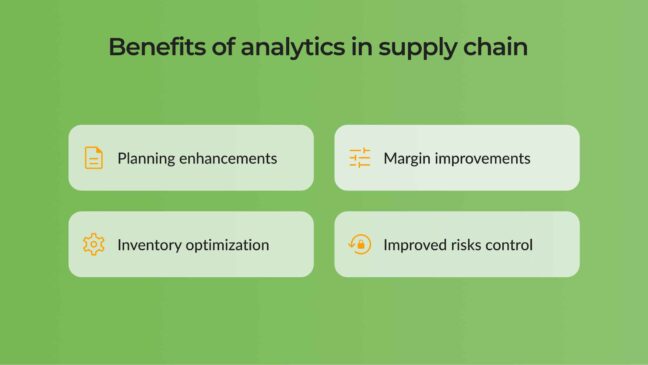Logistics is one of the most complex elements of a business, which largely depends on the quality and speed of processing a large amount of data. As a result, software APIs are increasingly crucial in simplifying logistics processes, helping optimize routes, managing inventory, and improving supply and shipping management.
The Essence of API
APIs can significantly improve the quality and speed of work of logisticians. One of the most essential advantages of the system is the ability to accurately track the loading, unloading, and shipping of cargo and visualize all stages of the journey. However, the primary value of the API lies not only in simplifying processes but also in the ability to make a business more profitable.
So, if you implement the system at each logistics stage, you can expand information about the shipping location and make the business many times more profitable. We are talking less about reducing the logistics department but about the ability to minimize costs on the way.
We can talk more about expediency, but we will save time and move on to a more specific topic – namely, the benefits of the API.
The Usage Benefits of API
Above, we described all the API’s advantages in the supply field. Now we will talk about them in a little more detail. For example, you can use the API for:
- Increases connectivity. In addition to performing specific tasks (calculating the actual path, costs, etc.), it will allow you to connect several systems into a single network. So, for example, you can analyze and visualize the entire path.
- Improve collaboration between stakeholders. Using the API, you can quickly combine the whole system into one supply chain.
- Management automation. Reducing a person’s role in loading and choosing the optimal path will speed up and simplify these processes.
- Increased scalability. Companies commonly use APIs to improve the scalability of their supply chain operations through the distribution of various components across multiple servers or systems.
- Speed up data processing. All of the above features look like a vast array of data, of course, the implementation of the API also implies the acceleration of work with information.
All of the above are just the main advantages that the Supply Chain API opens up for business. Now consider the types of applications.
Common Types of API
Today, a massive number of API systems have been implemented in the field of logistics. All of them are segmented. Now there are no industries left unaffected by the API in logistics. But we will describe the main directions in which the systems are implemented.
So the following types of applications stand out in the market:
Transport APIs
This type of system is designed specifically for calculating the movement of vehicles, thinking through the path, and the order of stops. One of the most common and popular among logistics companies.
Warehouse APIs
Warehouse management is also prevalent and allows you to set up the distribution of goods and a workflow for employees. Also, in such systems, precise control of loading and unloading is possible.
Order Management APIs
Systems of this type are responsible for accepting the task and all subsequent stages up to its execution. With the help of these APIs, not only is the cargo processed and tracked, but also the driver, his health, and the state of the transport; in case of any difficulties, the system updates the data and transfers them to the customer.
Supplier APIs
Procurement management, paving the best path and setting up deliveries generally, is one of the most common systems for logistics companies and most significant industries. However, a supply chain management system often includes all the above types.
Product APIs
The APIs are utilized for handling product-related activities, such as managing the product catalog and tracking product availability and pricing.
Payment APIs
This type simplifies the financial side of companies; it is used by logistics companies and all companies with a car park. These systems allow automatic payment of taxes, contributions, or fines.
Customer APIs
The APIs handle customer tasks like onboarding, managing accounts, and interacting with services. And now, let’s move away from theory to practice, consider using the API with examples.
API Use Examples
More than once, we talked about the value of API for business and how relevant the systems are. But if we do not give specific examples, everything told will remain only words, so let’s begin.
Walmart
Walmart employs APIs to improve its supply chain management by integrating various systems and data sources, particularly for monitoring inventory, managing shipments and deliveries, and promoting effective communication and collaboration with suppliers.
Amazon
Amazon uses APIs for multiple functions related to their supply chain operations, involving inventory management, shipment tracking, and delivery route optimization, as APIs are essential to the company’s business strategy.
UPS
UPS utilizes APIs for real-time shipment tracking, delivery updates, and integration with e-commerce platforms and marketplaces, providing merchants with efficient shipment and delivery management.
DHL
DHL employs APIs to improve the visibility of its supply chain operations, including real-time tracking of shipments and deliveries. APIs also enable better communication and collaboration with partners and suppliers.
FedEx
FedEx uses APIs to enhance the tracking of shipments and provide delivery updates in real-time. Additionally, APIs are utilized to optimize delivery routes and manage inventory.
Maersk
Maersk, a shipping company, employs APIs to improve shipment tracking and visibility for clients, as well as to optimize shipping routes and communication with partners and suppliers.
If you want to implement the API in your business, we recommend you decide in advance on the precise goals you want to achieve. Also, remember that it is better to turn to experienced teams in technical matters, as non-specialists may be unable to cope with the work, leading to substantial financial losses.
Author bio
Yuliya Melnik is a technical writer at Cleveroad. She is passionate about innovative technologies that make the world a better place and loves creating content that evokes vivid emotions.







